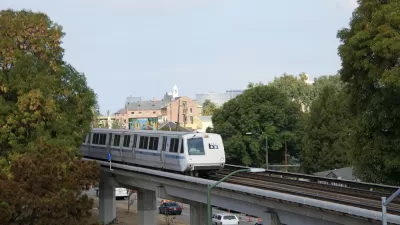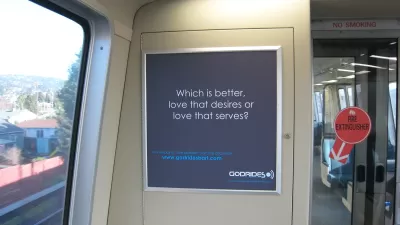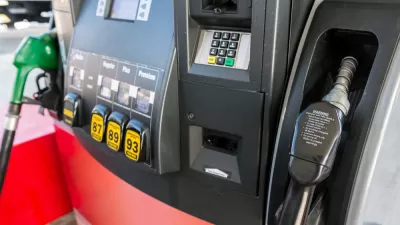After extensive outreach, the BART Board of Director settled on the $3.5 billion sum to be on the November ballot. 'Unmet capital needs' are the target of the property tax measure.

The measure will not fund new, exorbitant extensions or attention-grabbing ribbon-cutting projects that attract voters. The idea is to avoid what is happening to its younger sibling, D.C. Metro, which has been plagued with electrical problems resulting in lower ridership and even death caused by a smoke-filled tunnel in January 2015, as well as the problems being experienced in the Boston and New York subways.
"On Thursday June 9th, the BART Board of Directors voted 9-0 to approve an historical $3.5 billion general obligation bond measure that will fund BART’s plan to improve safety, increase train reliability and reduce traffic," states the BART announcement.
BART Chairman Tom Radulovich puts the measure into the context of meeting the transit agency's "unmet capital needs," which amount to over $9 billion "and the traditional sources could only account for about half of that," he states in the video accompanying the announcement. "Everything we need to keep the system in a state of good repair, and then everything we need to expand...to meet future needs."
D.C. Metro is not alone in seeing recent major electrical problems bring a partial halt to service. BART suffered a 'meltdown,' literally, in some electrical parts of its cars last March that disrupted service between two East Bay stations.
Reliance on riders and region
Radulovich stresses that in an era of declining state and federal transportation funding, it is incumbent on all transit systems to depend on their own resources, which means reaching out to the region in addition to their own riders.
This will be the third time the BART Board will have gone to voters for bonds, states Radulovich.
- First to build the original system in November 1962, a $792 million bond issue.
- The second was for earthquake safety: $980 million from General Obligation Bonds (Regional Measure AA) in November 2004 which "has been a terrific success," adds Radulovich
Also going to the capital budget are new fare increases.
We are also dedicating all of the fare increase revenue that we have done with these every-other-year fare increases that match CPI (consumer price increase). All of that new money is going to capital.
The system is aging, explain Radulovish. BART is 44-years-old, having opened in 1972, and is the eldest of the three siblings: D.C. Metro and MARTA, discussed at the bottom of this D.C. Metro post in April.
"The measure would boost property tax bills an average of $35 to $55 a year for 30 years," writes Michael Cabanatuan, transportation report for the San Francisco Chronicle.
The measure will need to pass with a two-thirds threshold per 1978 Proposition 13. While BART serves San Mateo County with its 2003 extension to Millbrae and SFO, and is expanding to Santa Clara County, it will only appear on the ballots of the three original BART counties of San Francisco, Alameda, and Contra Costa.
To read the full text of the General Obligation Bond Measure for BART Safety, Reliability and Traffic Relief Program and supporting documents, see KQED's News Fix article which also has a short audio on the measure.
BART is the fifth busiest heavy rail line in the U.S. after New York, D.C., Chicago, and Boston.

Now three transportation ballot measures in California in November
Also on the ballot in November in the Bay Area will be a half-cent sales tax measure in Santa Clara County floated by the Santa Clara Valley Transportation Authority that will yield about $6.5 billion in 30 years.
In Los Angeles County, a sales tax measure that combines new half-cent sales tax combined with extending and existing sales tax was placed on the ballot by the Los Angeles County Metropolitan Transportation Authority (Metro) is expected to produce about $120 billion in 40 years.
FULL STORY: BART approves $3.5 billion capital reinvestment bond measure

Planetizen Federal Action Tracker
A weekly monitor of how Trump’s orders and actions are impacting planners and planning in America.

Chicago’s Ghost Rails
Just beneath the surface of the modern city lie the remnants of its expansive early 20th-century streetcar system.

San Antonio and Austin are Fusing Into one Massive Megaregion
The region spanning the two central Texas cities is growing fast, posing challenges for local infrastructure and water supplies.

Since Zion's Shuttles Went Electric “The Smog is Gone”
Visitors to Zion National Park can enjoy the canyon via the nation’s first fully electric park shuttle system.

Trump Distributing DOT Safety Funds at 1/10 Rate of Biden
Funds for Safe Streets and other transportation safety and equity programs are being held up by administrative reviews and conflicts with the Trump administration’s priorities.

German Cities Subsidize Taxis for Women Amid Wave of Violence
Free or low-cost taxi rides can help women navigate cities more safely, but critics say the programs don't address the root causes of violence against women.
Urban Design for Planners 1: Software Tools
This six-course series explores essential urban design concepts using open source software and equips planners with the tools they need to participate fully in the urban design process.
Planning for Universal Design
Learn the tools for implementing Universal Design in planning regulations.
planning NEXT
Appalachian Highlands Housing Partners
Mpact (founded as Rail~Volution)
City of Camden Redevelopment Agency
City of Astoria
City of Portland
City of Laramie





























